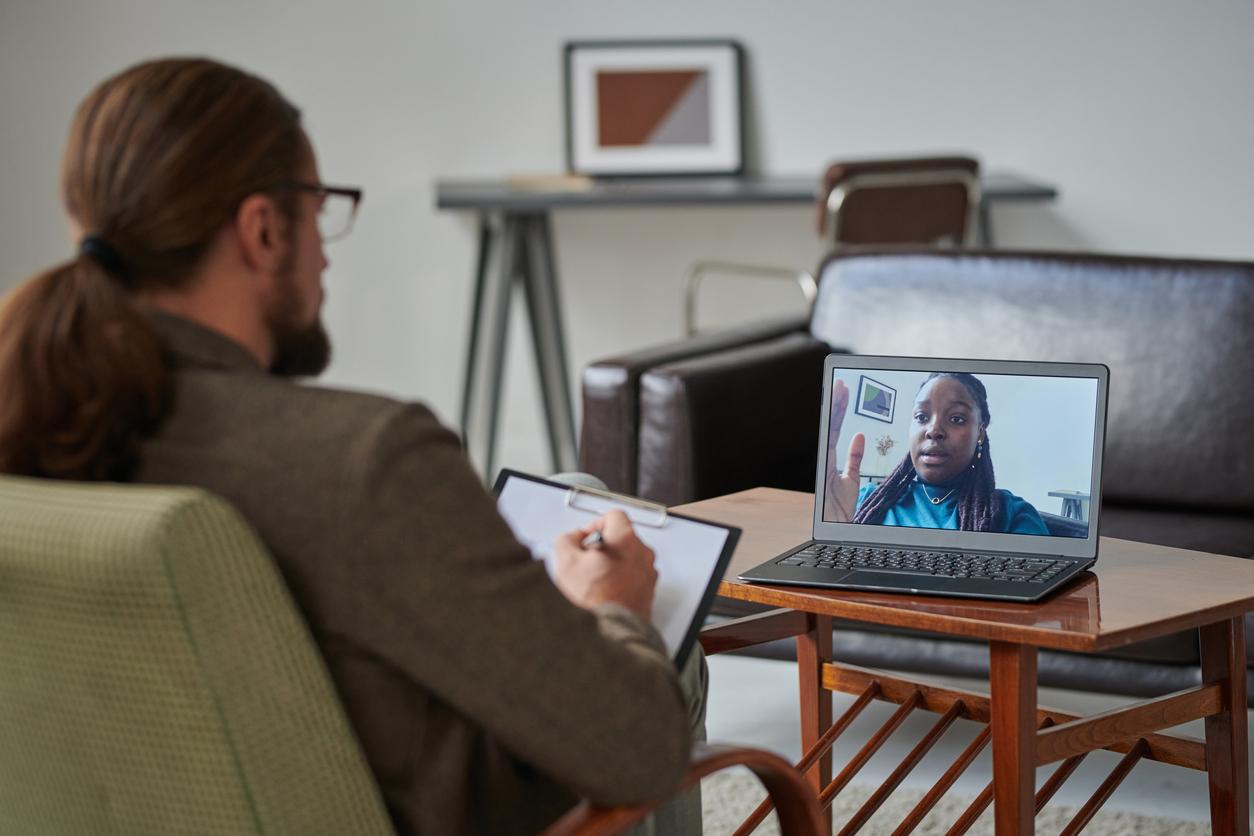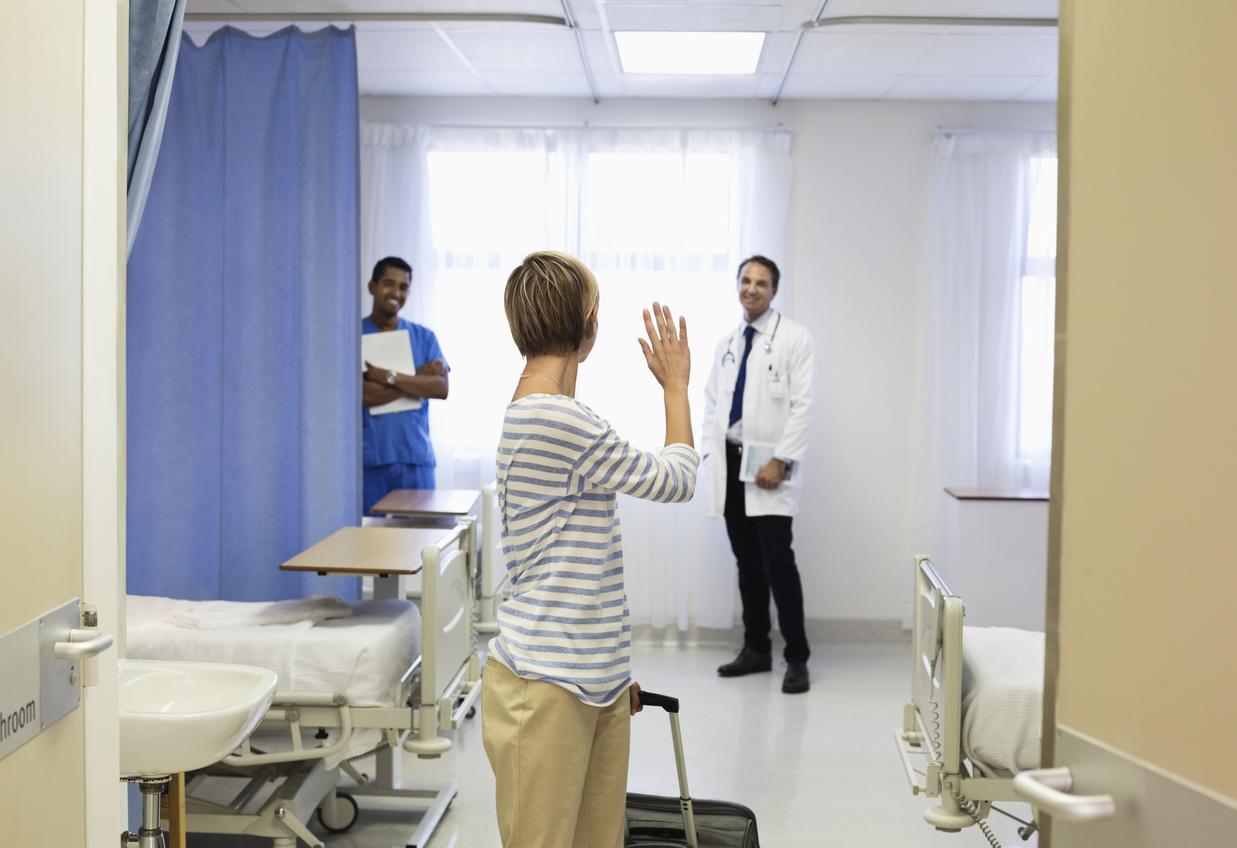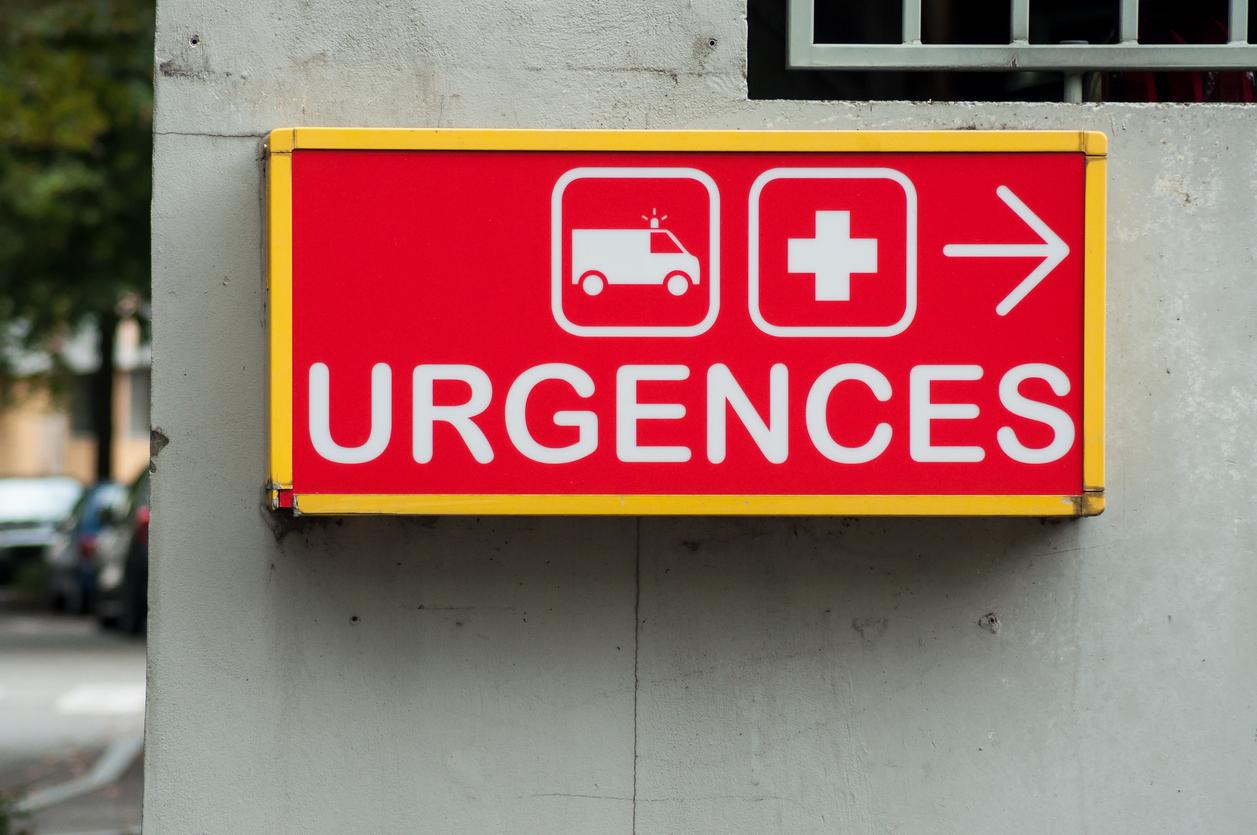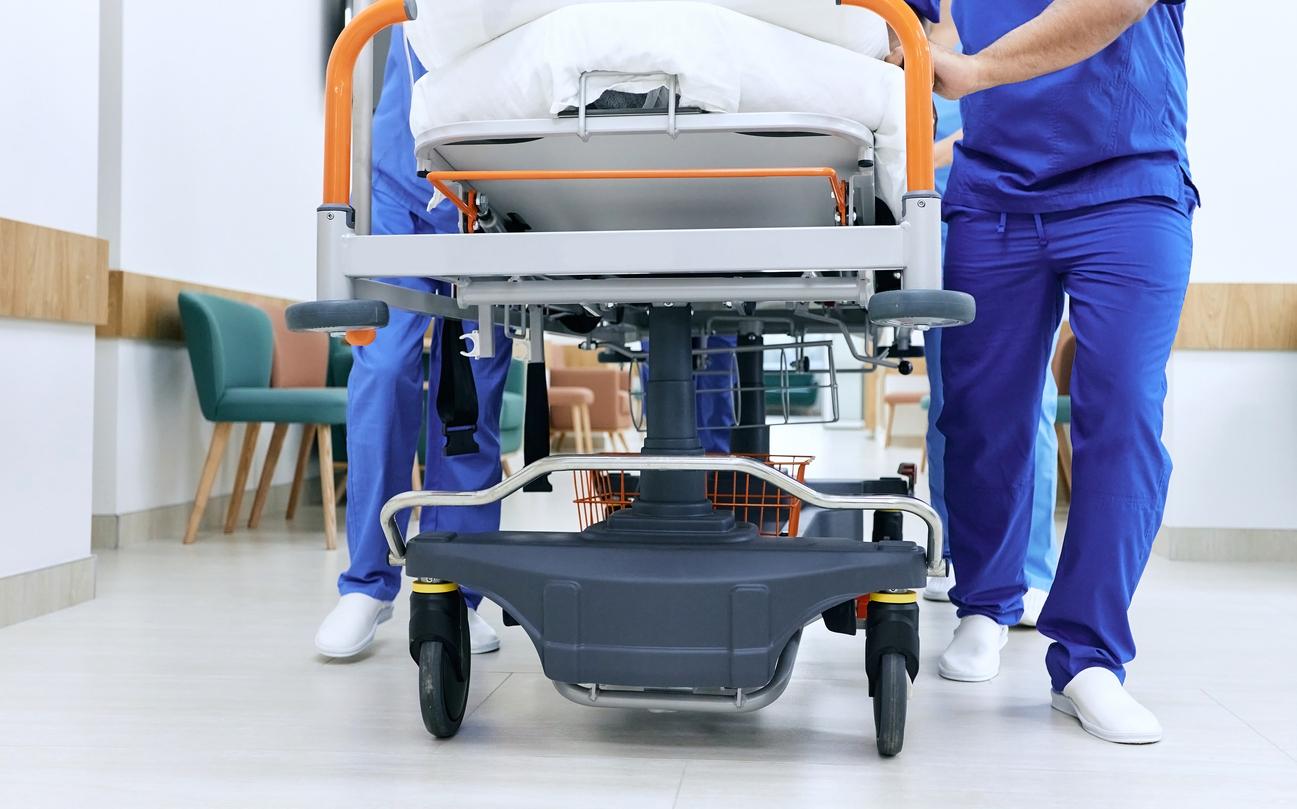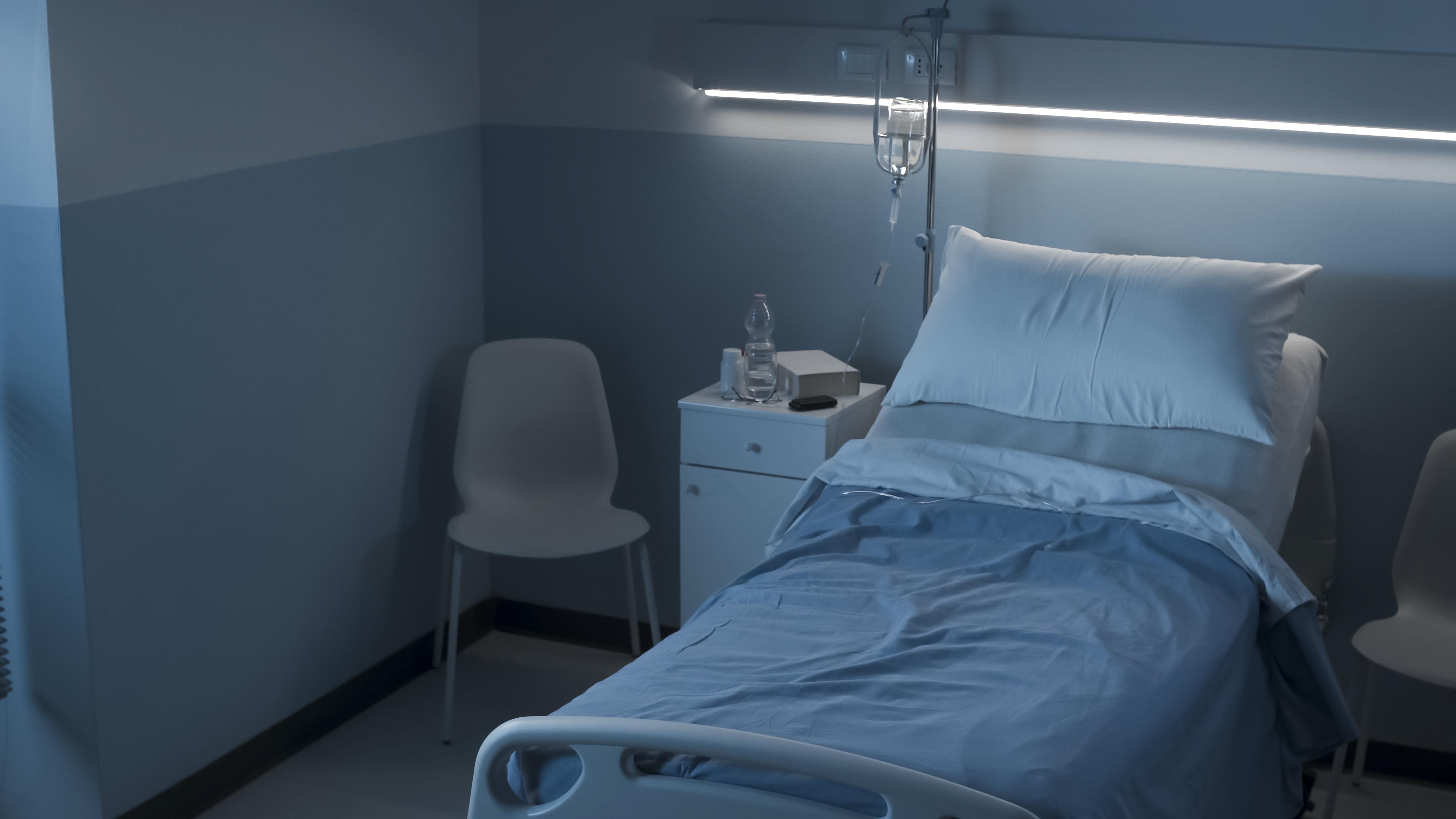
SURVEY – The hospital room of the future “Concept Home” bodes well for a very different hospital stay today. Alongside these futuristic projects, the French Hospital Federation (FHF) has its own vision of the establishments of tomorrow. They will leave more room for outpatient surgery and teleconsultations.
Unveiled in 2012 at the Hôpital Expo trade fair, the hospital room of the future puts innovation at the service of the patient. Called “Concept Home” (1), it augurs well for a stay in French hospitals that is very different from today. Visit with its designers: “Comfortably seated in a large armchair, you watch the MRI images that your neurologist comments on to you on a touchscreen tablet. Then you move your chair to a small table where you can have lunch with your spouse who has come to visit you. To sleep, all you have to do is tilt your chair into a lying position and fit it into the headboard provided for this purpose ”.
As you can see, the objective is to facilitate care and improve the quality of life of the hospitalized person. For the sake of economic efficiency, the other challenge will be to reduce the length of patient stays as much as possible, in particular by developing outpatient surgery. A management method where the patient returns in the morning to be operated on and leaves in the evening. For the French Hospital Federation (FHF), which represents hospitals and public medico-social establishments, some of these projects are possible in the short term. Its Managing Director, David Gruson, unveils the roadmap.
Will the length of hospital stay change?
David Gruson : In France, the development potential of outpatient care is considerable. The movement is already at work and massive. Over the past decade, we have eliminated 10,000 full inpatient surgery beds. We went from 44,000 to 34,000 beds, which is directly linked to the growth of outpatient surgery. But beware, the development potential is not unlimited. There will always be a need for technical medical platforms and significant operating theaters in the hospital sector because there is an increasing complexity in the management. And new techniques being deployed to respond to emerging pathologies. To sum up, I say “yes” to more ambulatory care, but not at any cost.
Tomorrow, we want half of the surgery activity to be done on an outpatient basis. This is an achievable goal and regions like Réunion are already there.
The outpatient clinic responds to patient requests and also allows considerable savings to be made.
However, the coordination between the city and the hospital is still fishing?
David Gruson : Yes, it is a very important stake in structuring the patient care pathways between the city and the hospital. There too there is a long way to go, even if the two actors start to talk to each other. But we must go further. There are reflexes to take regarding patient follow-up, the dissemination of hospitalization reports within a short time, and the ability to mobilize the leverage of new technologies to allow these modes of dialogue.
So the bed closures will continue?
David Gruson : Beware of preconceived ideas, the number of beds per inhabitant in France is 20% lower than in Germany. However, the notion of reducing capacity and closing beds is not at all taboo for the FHF, as long as it responds to medical projects and to the logic of economic efficiency. The emblematic example of this is the subject of the development of outpatient surgery. But there is also the need to preserve a certain number of hospital bed capacities to respond to the public health issues of today and tomorrow, such as the rise of neurodegenerative disorders. There will be a need to respond to the challenge of an aging population.
Will the hospital room of tomorrow be very different?
David Gruson : Yes clearly, it is a real digital revolution which is at work. It will change the relationship of our fellow citizens to their hospital. Specific example, the development of teleconsultations for vulnerable people, or those aged with neurodegenerative disorders. It will allow them to have access from home to their specialist who will be physically present in the hospital. It will be a real gain on the patient’s quality of life. And it will also save health insurance by avoiding unnecessary hospital stays and very expensive medical transport.
The other avenue is, with the development of hospital groups, the convergence of information systems between all hospitals. It will also be necessary to put in place tools for dialogue shared with city medicine. The aim is to make the flow of information more fluid in order to improve patient follow-up in compliance with ethical standards and medical confidentiality.
This will not necessarily mean a reduction in human personnel, which must be analyzed with regard to the medical activity and the health needs of the population.
(1) The first prototype of “Concept Home” was developed by around thirty SMEs from Nord-Pas de Calais, grouped together within Clubster Santé
.










